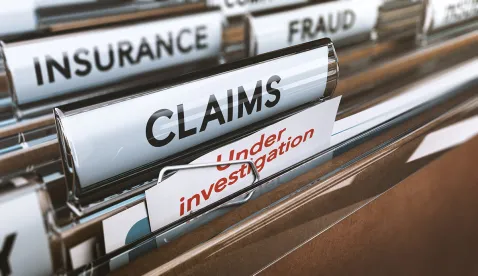Key Points:
-
Several courts have concluded that government-mandated shutdown orders during COVID-19 do not constitute "direct physical loss," a pre-requisite for insurance coverage that is outlined in insurance policies.
-
The US District Court for the Western District of Missouri recently denied an insurer's motion to dismiss an action by a group of business owners who sought coverage under their property insurance policies for losses due to shutdown orders.
Much of the discussion surrounding the viability of "business interruption" insurance claims arising from losses sustained by the COVID-19 pandemic has centered upon the (1) express exclusions for coverage contained in policies for viruses or communicable diseases and (2) the pre-requisite that most policies define a "covered loss" as one arising from a "direct physical loss" or "direct physical damage." With respect to the latter, several courts have concluded that government-mandated shutdown orders (Shutdown Orders) do not constitute "direct physical loss" to trigger coverage.1
In a striking departure from this authority, the US District Court for the Western District of Missouri recently denied an insurer's motion to dismiss an action by a group of business owners (Plaintiffs) who sought coverage under their "all-risks" property insurance policies (the Policies) for losses due to, among other things, Shutdown Orders.2 Central to the court's decision was Plaintiffs' allegation that their properties had themselves been infected with COVID-19, which "contamination" satisfied the undefined "physical loss" requirement in the Policies. However, the court explicitly "emphasize[d] that Plaintiffs have merely pled enough facts to proceed with discovery" and hinted that a different outcome may be appropriate on summary judgment. Accordingly, Studio 417 should not be interpreted to be a decisive ruling that losses arising from COVID-19 constitute direct "physical loss" or "physical damage" in this quickly developing area of case law, given the other conflicting decisions that have recently been issued.
In Studio 417, the Plaintiffs consisted of several owners of hair salons and restaurants in Missouri and Kansas who purchased from The Cincinnati Insurance Company (Defendant) the Policies that provided various coverages, including business income coverage. The Policies defined a covered loss to require "physical loss" or "physical damage," although those terms were not themselves defined in the Policies. None of the Policies contained an exclusion for viruses or communicable diseases. These Plaintiffs alleged that their business properties had likely been "infected" by the COVID-19 virus, a "physical substance" that can survive on "physical surfaces" and is "emitted into the air,” and thus the presence of the virus rendered their physical properties "unsafe and unusable." Plaintiffs claimed they had suffered a direct “physical loss” or “physical damage” due to the presence of COVID-19 and the related impact of the Shutdown Orders.
moving to dismiss, Defendant rejected Plaintiffs' theory that the existence of COVID-19 in or on their business properties constituted "physical loss," which it defined as "actual, tangible, permanent, physical alteration of property." Plaintiffs countered that the Policies did not define "physical loss" or "physical damage," that Defendants' interpretation of those terms ignored their logical differences, and, to the extent the terms were ambiguous, that the court could not dismiss the case on the pleadings.
Although the court largely sidestepped Plaintiffs' ambiguity argument, it effectively adopted Plaintiffs' interpretation of "physical loss." Without a specific definition in the Policies, the court looked to the "plain and ordinary" meaning — the dictionary definition — of "physical loss," which it was required to interpret so as to not render the term "physical damage" superfluous. Because Plaintiffs alleged a "causal connection" between the virus, which had "attached to and deprived [Plaintiffs] of their property, making it 'unsafe and unusable,'" and subsequent losses, the court concluded that they had adequately alleged a direct "physical loss." The court also relied on prior decisions that held that undefined "physical loss" language does not require actual physical damage but rather could encompass the danger of physical loss.
Notably, the court distinguished recent authority cited by Defendant, including Social Life and Gavrilides, which concluded that COVID-19 did not cause direct physical loss. The key difference, at least for the court, was that plaintiffs in other cases had not alleged the presence of (or contamination by) the virus in the business premises. Another difference — although not identified by the court — was that the policies at issue in Social Life and Gavrilides required "direct physical loss," whereas the Policies in Studio 417 required mere "physical loss."
While Studio 417 may seem promising for policyholders, the court itself indicated that Plaintiffs have prevailed only in the initial skirmish and may yet lose the coverage war. Whether because of facts developed during discovery or subsequent case law, the court emphasized that its rulings were "subject to further review." For instance, it is difficult to see how Plaintiffs could prove that COVID-19 was actually present at their business premises when, as the court itself acknowledged, "the virus either dies naturally in days, or it can be wiped away."3 Given that at least one other court has subsequently reached the opposite conclusion as to the "physical alteration" requirement for physical loss, Studio 417 may have limited utility in future coverage disputes.
1 See, e.g., Rose's 1 LLC et al. v. Erie Insurance Exchange, Case No. 2020 CA 002424 B (D.C. Sup. Ct. Aug. 6, 2020); Gavrilides Mgmt. Co. LLC v. Michigan Ins. Co., Case No. 20-258-CB (Ingham Cty., Mich. July 1, 2020) ("Gavrilides"); Social Life Magazine, Inc. v. Sentinel Ins. Co., Ltd., Case No. 20-cv-03311-VEC (S.D.N.Y. May 14, 2020) ("Social Life").
2 Studio 417 Inc. et al. v. The Cincinnati Insurance Co., Case No. 6:20-cv-03127-SRB (W.D. Mo. Aug. 12, 2020) ("Studio 417").
3 Studio 417 at 13 n.6 (citing Defendant's argument as to the ephemerality of the virus but holding that Plaintiffs adequately alleged physical loss because the presence of COVID-19 and the Shutdown Orders "prohibited or significantly restricted access to Plaintiffs' premises").






 />i
/>i

